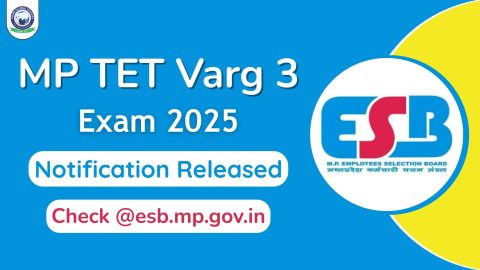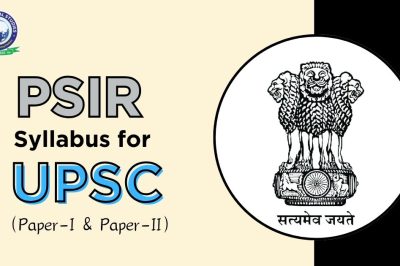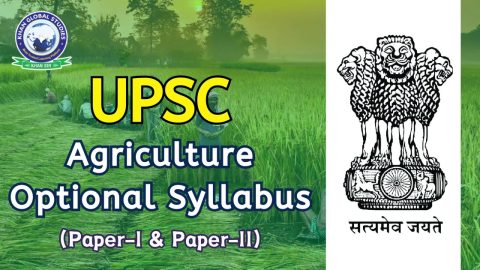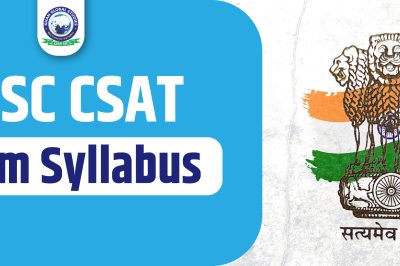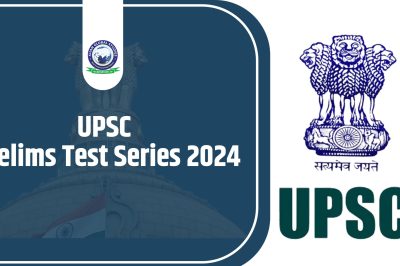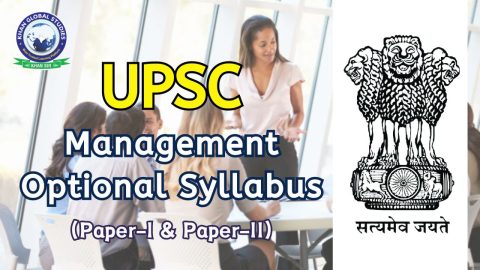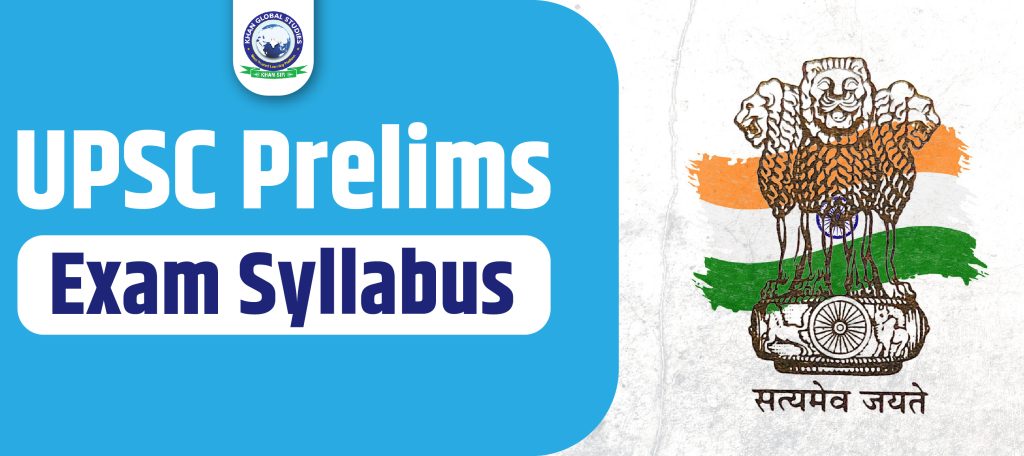
The Civil Services Examination is conducted every year by the Union Public Service Commission (UPSC) for the famous posts in the Government of India like IAS, IPS, IFS, IRS etc.
The UPSC exam consists of three stages:
- Preliminary Examination (Objective Type)
- Main Examination (Traditional Type Written Examination)
- Interview/Personality Test
The UPSC preliminary exam is divided into two papers:
- General Studies Paper-I (GS-I) and
- General Studies Paper-II (CSAT).
UPSC Prelims Syllabus 2024: Overview
Candidates who are preparing for the UPSC exam need to know the syllabus of both the preliminary and main exams. UPSC Prelims Exam is the preliminary stage of the examination and is objective.
| Category | UPSC Prelims Syllabus |
| No. of Papers | General Studies – IGeneral Studies – II (CSAT) |
| Types of Questions | Objective-Type (MCQs) |
| No. of Questions | 100 Questions for GS-I80 Questions for GS-II |
| Time Duration | 2 Hours for Each Paper |
| Maximum Marks | 200 Marks for Each Paper |
| Language of Exam | Hindi & English |
| Mode of Exam | Offline (Pen & Paper) |
| Negative Marking | 1/3rd mark for each wrong answer |
UPSC Prelims 2023 Syllabus Subject-wise
A detailed UPSC syllabus is available in this section. Candidates can review the entire General Studies (Paper-I) and CSAT (Paper-II) syllabus subject-wise and start preparing for UPSC CSE 2023.
UPSC Prelims Syllabus for GS Paper-1
The first paper of the UPSC Prelims exam is General Studies 1 (GS-1) which includes Geography, History, Art and Culture, Politics, Economy, Environment and Ecology, General Science, Science and Technology and Current Affairs.
Geography Syllabus for UPSC Prelims Exam
| Fundamentals of Geography (Physical Geography) | Principles of Indian Geography |
| General Geography: Universe Earth Evolution Geomorphology: Earth’s Interior Geology and Rock System Geomorphic Process Earthquakes and Volcanism Distribution of Continents and Oceans Landforms and their evolution Landforms across the world Oceanography: Hydrosphere Submarine Relief Features Temperature and Salinity Waves, Oceans, Currents, Tides Marine Resources Ocean, Deposits and Corals Climatology: AtmosphereInversion of Temperature Insolation and Heat Budget Air Mass, Fronts, Cyclones and Jet Streams Wind and Pressure Belts Precipitation Climate Zones of the World Bio Geography: Soil Characteristics Vegetation Resources Human and Economic Geography: Demography and Census Human Development Economic Activities Transport and Communication International Trade Settlement | Indian Geography: Physiography of India Drainage System Climate Soils in India Natural Vegetation Population Settlements and Urbanization Land Resource Mineral Resource Energy Resource Agriculture and Basic Terminology Recent developments in agriculture productivity of CropsIndustry Transport Recent developments in Industry and Transport World Regional Geography: Continents, Countries, and Cities Location in News |
History Syllabus for UPSC Prelims Exam
| Ancient History | Pre-Historic Times Indus Valley Civilization Rig Vedic Period Later Vedic Period Jainism Buddhism Mahajanpadas Mauryan Empire Post-Mauryan Period Gupta Period Harshwardhana Period Sangam Period (South-Indian Dynasties) |
| Medieval History | Famous Early Medieval Indian Dynasties (Pallavas, Pratiharas, Chalukyas, Rashtrakutas) Cholas and South Indian Kingdoms Early Muslim Invasions The Delhi Sultanate Afghans, Rajputs & Mughals Establishment of the North-Indian Empire The Mughal Empire Marathas and the Other Indian States The decline of the Mughal Empire Vijaynagar Empire |
| Modern History | Advent of Europeans British Expansion Administration before 1857 Economic Policies of the British Impact of British Administration Revolt of 1857 Administrative Changes after 1857 Development of Civil Services Development of Education Development of Press Socio-Religious Reforms Peasant Movements Revolutionary Nationalism Indian National Movement-I (1905-1918) Indian National Movement-II (1918-1929) Indian National Movement-III (1930-1947) Governors-General and Viceroys of India Constitutional Development of Indian |
Art and Culture Syllabus for UPSC Prelims Exam
- Architecture
- Sculpture
- Paintings (Mural & Miniature)
- Pottery Tradition
- Numismatics
- Performing Arts (Dance, Music, Theater, Martial Arts)
- Religion and Literature
- National and Regional Festivals
Environment Syllabus for UPSC Prelims Exam
| Environment & Ecology | Bio-diversity |
| Origin of Life Forms Basic Concepts of Ecology Ecosystem Functions Population Ecology Adaptation of Species and Interactions Terrestrial Ecosystem Aquatic Ecosystem Nutrient Cycling | Basics of Biodiversity Animal and Plant Diversity Threats to Biodiversity Biodiversity Conservation Estuaries Mangroves Coral Reefs Wetlands Resource Degradation and Management Environmental Pollution Climate Change Environmental Governance |
Polity Syllabus for UPSC Prelims Exam
| Evolution of the Consitution Salient Features of the Indian Constitution Union Territories Citizenship Fundamental Rights Directive Principles of State Policy Fundamental Duties System of Governance Union Executive Union Legislature | State Executive State Legislature Local Government UT and Special Areas Judiciary Constitutional & Non-Constitutional Bodies Political Dynamics (Political Parties, Elections, Pressure Groups) Governance International Relations |
Economy Syllabus for UPSC Prelims Exam
| Basic Concepts: Macroeconomic Concepts Microeconomic Concepts Economic Measurements: National Income & Its Calculation Economic Growth and Development Inflation Money & Banking: Money Function & Classification Financial Markets & Its Instruments Banking Structure in India Public Finance in India: Budgeting Fiscal Policy Centre-state Distribution Tax Structure in India | Planning: Meaning, Objective & History Planning Institutions Five-Year Plans in India NITI Aayog Open Economy: Foreign Trade Concepts International Organizations Trade Agreements Recent Development Economic Sectors: Poverty Employment and Unemployment Government Schemes and Programmes |
General Science Syllabus for UPSC Prelims Exam
- Science & Technology in India
- Space
- IT and Communication
- Materials, Nano Technology and Robotics
- Defence
- Nuclear Technology
- Intellectual Property Rights and Other Miscellaneous Issues
- Biotechnology
CSAT Syllabus for UPSC Prelims Exam
The following main categories comprise the UPSC CSAT syllabus which is mentioned in the UPSC notification:
- Understanding
- interpersonal skills including communication skills
- Logical Reasoning and Analytical Ability
- decision-making and problem-solving
- general mental ability
- Basic numerical skills (order of magnitude, numbers and their relationships, etc.) (tenth class level)
- Data Interpretation (Graphs, Charts, Tables, Data Sufficiency etc.) (Xth Class Level).
Some Important Facts About UPSC Prelims Exam
Certainly, here are some important facts about the UPSC Prelims Exam:
- Objective Test: UPSC Prelims is an objective type examination consisting of two papers: Paper-I (General Studies) and Paper-II (Civil Services Aptitude Test or CSAT).
- Qualifying Nature: Paper-II (CSAT) is of qualifying nature, and candidates need to score a minimum of 33% marks to proceed to the main examination.
- Negative Marking: There is a negative marking for wrong answers. For each wrong answer, one-third of the marks assigned to the question are deducted.
- Cut-off Marks: The cut-off marks for Prelims are determined every year at the discretion of UPSC and vary from year to year.
- Equal Weightage: Both papers have equal weightage in terms of preliminary exam marks.
- All India Ranking: The result of the preliminary examination is based on the All India Ranking System, and only a certain number of candidates are selected for the main examination.
- Limit of one attempt: Candidates can attempt the UPSC Prelims exam a maximum of six times, provided they fulfill the age criteria.
